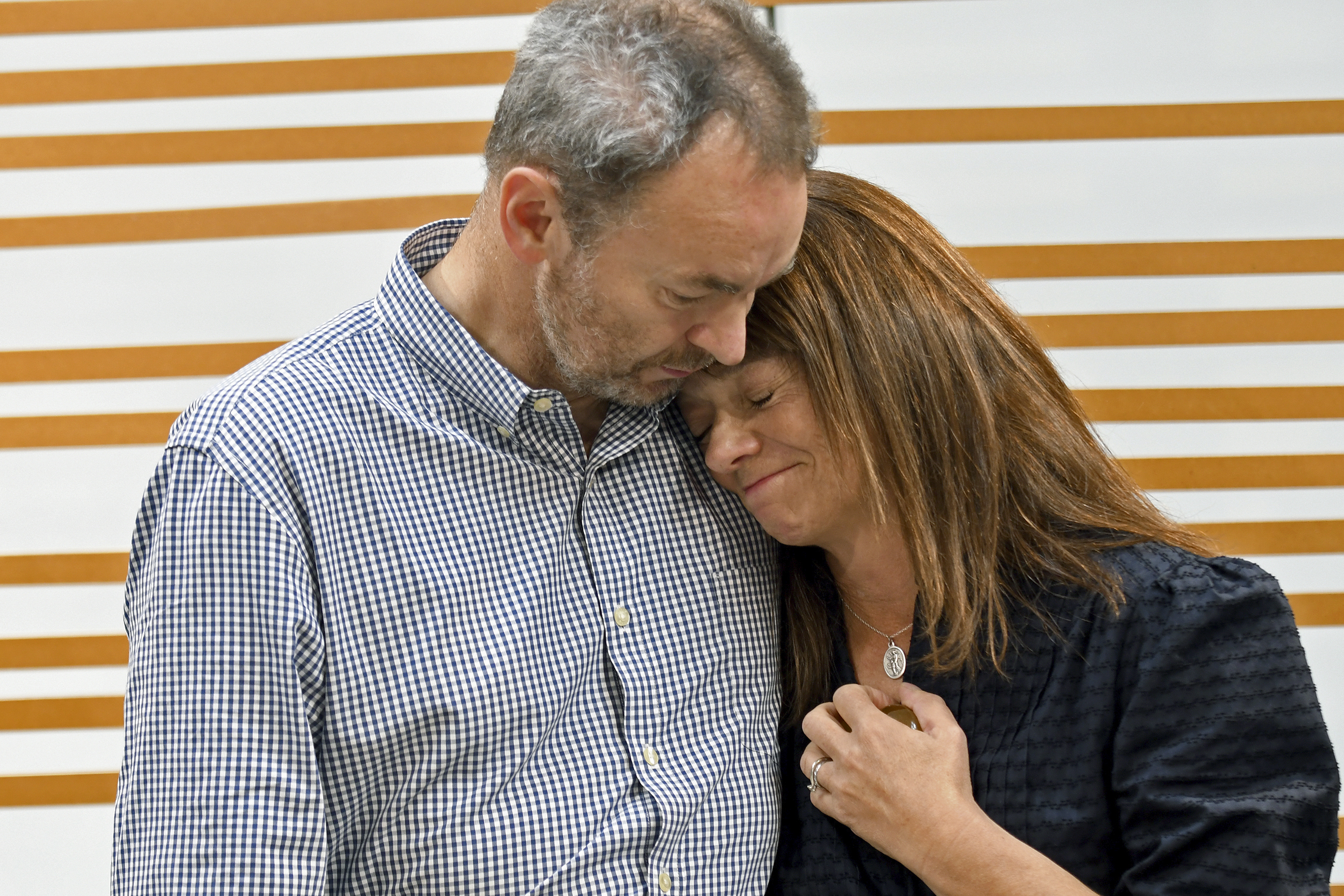
Mothers often feel connected to their children; now science tells us that that the connection is literally true ... and that idea is bringing comfort to a number of women who have suffered a loss.
Microchimerism (pronounced "mike-ro-KY-mer-is-um") is when "there are cells that aren't yours that are existing in your body," says Melissa Wilson, an associate professor of genetics at Arizona State University who co-authored a study on fetal microchimerism and maternal health.
This science supports something I already knew to be true. We become something new when we become mothers.
ELAINE HEALY
Microchimerism can occur through organ transplants, blood donation, lactation — or pregnancy. The phenomenon gets its name from the mythological chimera, a fire-breathing beast that combines parts from three animals: a lion, a snake and a goat.
Get Boston local news, weather forecasts, lifestyle and entertainment stories to your inbox. Sign up for NBC Boston’s newsletters.
Simply put, moms carry in their bodies fetal cells from every pregnancy. Forever.
As soon as the placenta implants in the uterus (which can occur as early as six days after conception), cells from the fetus may enter the mother's body, and vice versa. Even if the pregnancy doesn't result in a live birth, those fetal cells remain.
This idea hits especially hard for women who have experienced miscarriage, pregnancy loss or stillbirth.
U.S. & World
Lee Ann Townes, a mom of two who had a "missed miscarriage" at 10 weeks in 2022, found an enormous amount of peace in the concept of microchimerism. As that pregnancy's due date approached, Townes says she was "a mess." But after a friend told her that a bit of her "angel baby" would literally be with her forever, she says, "I was immediately overcome with a feeling of peace; I felt more connected to my body and to the baby we lost. It somehow made the pregnancy, though brief, feel more real."
They’ve been with me this whole time, and not just something that used to be a part of me
ERIN LETTMAN
She's not alone.
Erin Lettman experienced a miscarriage at 11 weeks in 2003 and a “vanishing twin” loss in 2007. "It’s very comforting to know that these children, who I loved deeply and never got to meet, are more than just a memory or a ghost," she says. "I’ve always carried them in my mind and my heart, wondered who they would have looked like, what kind of person they would have been. Knowing they’ve been with me this whole time, and not just something that used to be a part of me, is a gift I had not imagined."
Wilson, who has three children, is similarly affected by her own research. She says that "this concept that at some point you were swapping cells, and there's a little bit that you're carrying with you forever of this little tiny creature ... it kind of gets to me every time I think about it."
Because studies have based most research on animal testing rather than human, they do not conclusively state where the fetal cells may go in the body, but they do know that they move through the circulatory system. "They get lodged often in lungs and in the heart and places where blood is very common, and also in the skin. We've found them in most every tissue," Wilson says.
Wilson used to tell her kids that they were “in her heart,” but once she learned about microchimerism, she now says, laughing, “I am literally with you every single day of your life.”
“It does seem kind of magical. Almost like science fiction, too,” says Athena Aktipis, associate professor of psychology at Arizona State University. She worked with Wilson on the microchimerism study.
A mother of three, Aktipis says that she has had "a few miscarriages, and the idea that I have in me all of these cells from all of these different individuals — and my mom, too, who I lost when I was younger — there is something strangely comforting about it."
Elaine Healy had a miscarriage at six weeks in 2010. She went on to give birth to two healthy daughters, and she still thinks about her first due date.
"I love the idea that my girls’ DNA lives in me; they are a part of every fiber of my being — their joy, their pain," she says. "This science supports something I already knew to be true. We become something new when we become mothers. We are forever changed."
This story first appeared on TODAY.com. More from TODAY:



